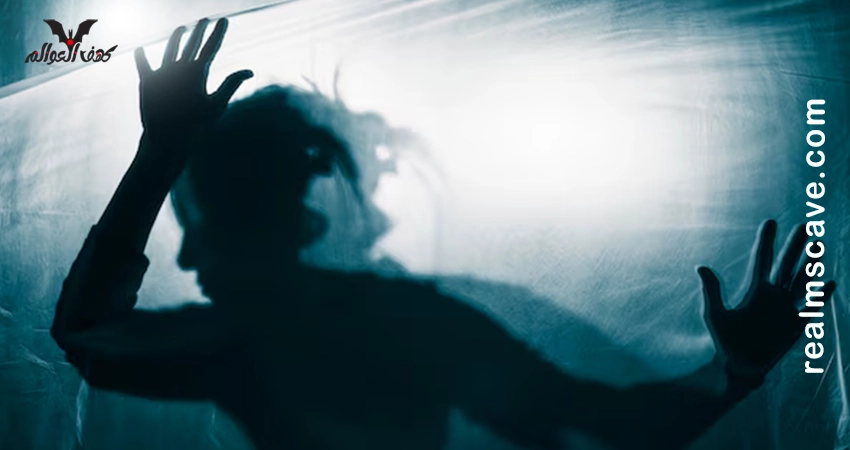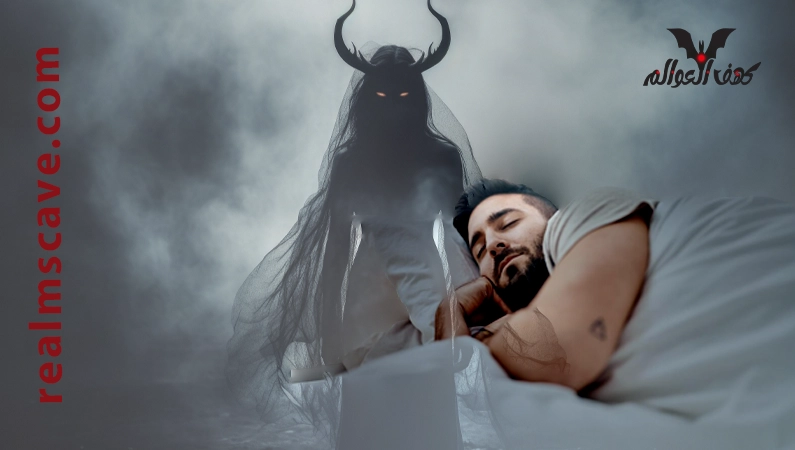Queen Kahla bint Barqan: A Legend from the World of the Jinn
Queen Kahla Bint Burqan: A Jinn Legend
Queen Kahla bint Burqan is a prominent mythical figure in Arabic folklore, particularly within the world of jinn and spiritual matters. She is a character frequently mentioned in popular tales and forums dedicated to dark magic and spiritual practices, where she is considered one of the queens of the jinn associated with the seven jinn kings, specifically her father, King Burqan, known as "Abu Al-Aja'ib" (Father of Wonders). While she does not appear in documented religious or historical sources like the Holy Quran or the Prophet's Sunnah, she holds a special place in Arab folk traditions, where stories about her blend mystery, magic, and supernatural powers.
The Origin and Identity of Queen Kahla
Kahla bint Burqan is the daughter of King Burqan, one of the Jewish jinn kings referred to in folklore as the servants of the days of the week, specifically Wednesday. Burqan is described as a powerful king who lives in mountains and deserts, and is associated with the Kuwait region in some accounts. As his daughter, Kahla is considered a queen with authority and power in the jinn world. She is said to appear as a dark-skinned woman when summoned in spiritual rituals. It is mentioned that she belongs to a jinn tribe known as the Bani Al-Qamaqim or Bani Al-Nu'man, which reinforces her status as a prominent legendary figure.
Rituals for Summoning Kahla
Popular narratives suggest that summoning Queen Kahla requires precise rituals and strict conditions. These rituals are typically performed on a Wednesday night after the evening prayer, in a secluded place away from people's sight. The rituals involve writing a specific incantation on the palm of the hand and using an incense mixture of frankincense, "hantit," and dried coriander. The summoner is also required to fast spiritually for a week, abstaining from meat, fats, and anything with a soul, while adhering to physical and spiritual purity. Other conditions include wearing clean clothes and sitting facing the Qibla while reciting the incantations.
In some accounts, Kahla demands that the summoner pledge not to obey God, making these rituals part of the dark magic forbidden in Islam. There are also stories that claim Kahla might demand the summoner to have intercourse with her as a condition to fulfill their request, whether it's to bring a loved one, uncover hidden treasures, or other needs. These details add a mysterious and controversial nature to her character, portraying her as a supernatural being with great powers but who operates outside the framework of religious values.
Kahla's Role in Folklore
Kahla bint Burqan is a symbol of feminine power in the jinn world, portrayed as a queen who combines beauty and authority. In folk tales, she is used as a means to achieve various goals, such as bringing a lover back, sexual arousal, or even solving material and spiritual problems. Some sources suggest she does not harm the summoner if the rituals are performed correctly, making her a somewhat "neutral" figure. However, her association with dark magic places her in a religiously forbidden area.
Within the context of Arabic folklore, Kahla is part of a rich world of jinn characters and stories. Her name is linked to other jinn kings like Maimun, the Red King, and Shamkh, reflecting a complex hierarchical structure in the popular jinn world. This world reflects the imagination of the Arab peoples in explaining supernatural phenomena, where magic and jinn were part of the popular explanations for incomprehensible events.
Religious and Cultural Warnings
It is important to emphasize that dealing with jinn or magic is forbidden in Islam, as magic is considered shirk (polytheism) or kufr (disbelief) according to religious texts. The Quran warns against magic and its practitioners in several verses, including this one from Surah Al-Baqarah (verse 102): "And they followed [instead] what the devils had recited during the reign of Solomon. It was not Solomon who disbelieved, but the devils disbelieved, teaching people magic and that which was revealed to the two angels at Babylon, Harut and Marut. But the two angels do not teach anyone unless they say, 'We are a trial, so do not disbelieve [by practicing magic].' And [yet] they learn from them that by which they cause separation between a man and his wife. But they do not harm anyone through it except by permission of Allah. And they learn that which harms them and does not benefit them." This verse shows that magic is taught by devils and leads to harm and disbelief, while also clarifying that no harm occurs except by God's permission.
The Quran also warns against seeking help from devils and jinn in Surah Al-Jinn (verse 6): "And indeed, there were men from mankind who sought refuge in men from the jinn, so they [only] increased them in burden [or fear]." This indicates that seeking refuge in jinn only increases a person's error and fear. In Surah Al-Falaq (verses 1-5): "Say, 'I seek refuge in the Lord of daybreak. From the evil of that which He created. And from the evil of darkness when it settles. And from the evil of the blowers in knots. And from the evil of an envier when he envies.'" God commands seeking refuge from the evil of magicians who blow on knots, a reference to magical acts.
Furthermore, the Prophet Muhammad (peace be upon him) warned against magic, saying: "Avoid the seven destructive sins," and he mentioned magic among them (narrated by Al-Bukhari and Muslim). The stories related to Kahla bint Burqan come from undocumented sources, such as internet forums and unofficial spiritual books, making them part of popular folklore rather than religious or historical facts. These stories, despite their appeal in popular culture, may encourage forbidden practices that cause spiritual and psychological harm. Therefore, it is recommended to avoid them and hold fast to the correct faith, seeking refuge in God from the accursed devil.
Queen Kahla bint Burqan represents one of the mythical figures that reflects the richness of Arab heritage in folklore and spirituality. As the daughter of King Burqan, Kahla has a mysterious character that combines power, beauty, and danger. Despite the appeal of these stories in popular culture, they remain surrounded by religious and cultural warnings that call for the avoidance of such practices. Kahla's story shows how popular imagination can weave parallel worlds that spark curiosity, while also reminding us of the importance of holding on to religious and rational values when dealing with the unknown.





إرسال التعليق